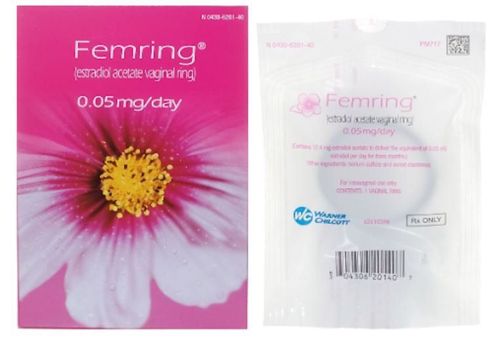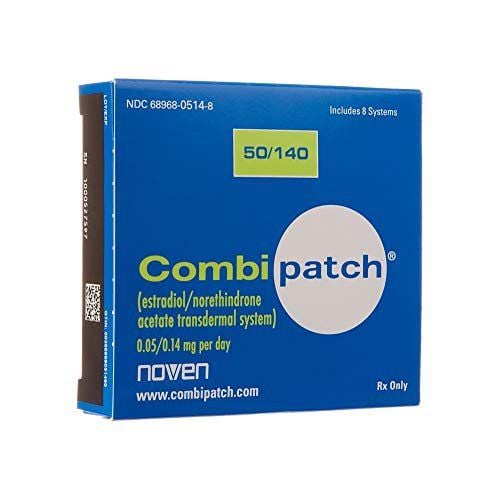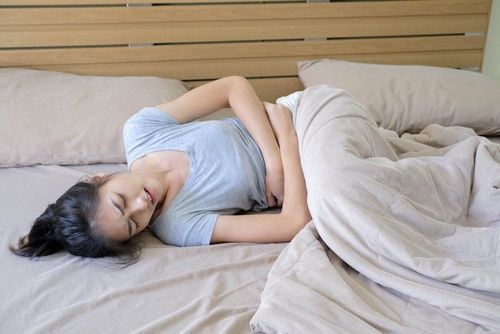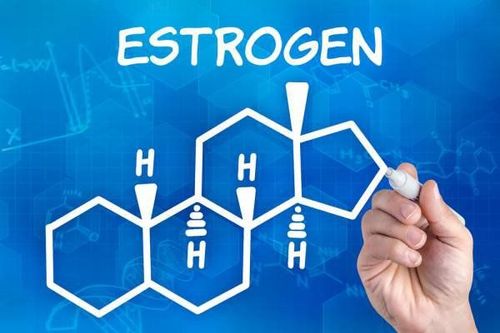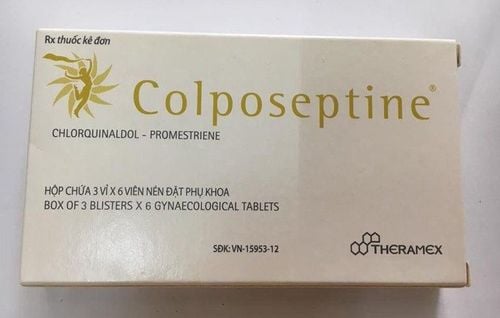This is an automatically translated article.
Vaginal atrophy is a condition that causes many inconveniences and discomforts to sufferers, affecting quality of life. So what are the signs that vaginal atrophy is happening?1. What is Vaginal Atrophy?
Vaginal atrophy is a condition in which the vaginal walls become thin, dry and inflamed, which occurs when the body lacks estrogen. Vaginal atrophy most commonly occurs after menopause.For many women, vaginal atrophy not only causes pain during sex but also causes unpleasant urinary symptoms. Therefore, doctors rarely refer to vaginal atrophy alone, but use the term menopausal syndrome of menopause (GSM) to describe vaginal atrophy and other symptoms. associated symptoms (because vaginal atrophy affects both the vagina and the urinary tract).
Menopausal urogenital syndrome can be treated with simple and effective methods. A drop in estrogen levels leads to many changes in the body, but that doesn't mean you have to live with the discomforts of menopausal urogenital syndrome.
2. Signs and symptoms of vaginal atrophy as well as menopausal urogenital syndrome
Signs and symptoms of vaginal atrophy as well as menopausal urogenital syndrome can be:Vaginal dryness. Vaginal burning. Abnormal vaginal discharge. Itching of the genitals. Burning when urinating. Urination, feeling the need to urinate immediately. Urinate many times. Recurrent urinary tract infections. Urinary loss of control. Light bleeding after sex. Discomfort during sex. Vaginal secretion is reduced during sexual acts. The vagina becomes short and narrow.

Khô âm đạo là một trong số những triệu chứng của teo âm đạo
3. Causes of urogenital syndrome in menopause
Menopausal urogenital syndrome is caused by a decrease in the secretion of the hormone estrogen. Low estrogen levels lead to vaginal tissues becoming thinner, drier, less elastic and more vulnerable to damage.Possible drop in estrogen levels:
After menopause. During perimenopause. After surgical removal of both ovaries. During breastfeeding. While taking medications that affect estrogen levels, such as birth control pills. After radiation therapy for pelvic cancer. After chemotherapy treatment. An unwanted effect of hormone therapy for breast cancer. Signs and symptoms of menopausal urogenital syndrome may appear as early as perimenopause or may be years after menopause. Although common, not all postmenopausal women experience menopausal urogenital syndrome. Casual sexual acts (with a partner or masturbation) can help keep vaginal tissues healthy.
4. Risk factors for menopausal urogenital syndrome

Hút thuốc lá có thể làm tăng khả năng xảy ra hội chứng niệu dục thời kì mãn kinh
Smoking: smoking can affect blood circulation, and may cause a decrease in blood volume. and oxygen to the vagina and surrounding areas. Smoking also reduces the effectiveness of the body's endogenous estrogen. Never had a vaginal birth: researchers have observed that women who have never had a vaginal birth are more likely to develop symptoms of menopausal urogenital syndrome than women who have given birth. vaginal birth. Not having sex: Sexual acts, whether with a partner or masturbation, increase blood flow and make vaginal tissues more elastic.
5. When to see a doctor?
Many postmenopausal women develop menopausal urogenital syndrome, but few seek medical attention and treatment, because they are afraid to describe to their doctor what is going on, and thus silently suffer the symptoms. symptoms of menopausal urogenital syndrome.See your doctor if you notice spotting or unexplained bleeding, unusual discharge, pain or burning sensation.
If you have pain during sex, use vaginal moisturizers (such as K-Y Liquibeads, Replens, Sliquid, ...) or water-based lubricants (such as Astroglide, K-Y Jelly, Sliquid, ...) still doesn't solve the problem, see a doctor.
6. Diagnosis of urogenital syndrome in menopause
To diagnose menopausal urogenital syndrome your doctor may need:Vaginal examination. Urinalysis: when the patient has symptoms of the urinary system. Acid balance test: by taking a sample of vaginal fluid for testing or using an indicator paper to scan the vagina to see the acid balance of the vagina.
7. Treatment of urogenital syndrome in menopause

Có thể sử dụng các sản phẩm có tác dụng dưỡng ẩm âm đạo để phục hồi lại độ ẩm cho âm đạo
Vaginal moisturizers: with products like K-Y Liquibeads, Replens, Sliquid,. .. to help restore vaginal moisture, and often this method lasts longer than using vaginal lubricants. Vaginal lubricants: with products such as Astroglide, K-Y Jelly, Sliquid, ... are used right before sex, helping to reduce discomfort during sex. Choose products that do not contain glycerin or warming ingredients because they can cause irritation. Avoid oil-based lubricants if you have sex with a condom, because oil-based lubricants can damage condoms. If the above options are not effective, your doctor may prescribe:
Topical estrogen: vaginal estrogen has the advantage of being effective at a lower dose and limiting the effects on the whole body. It also relieves symptoms better than oral estrogen. There are many different types of vaginal estrogen with similar effects: Vaginal estrogen cream (Estrace, Premarin). Vaginal estrogen suppositories (Imvexxy). Vaginal estrogen ring (Estring, Femring). Vaginal estrogen tablets (Vagifem). Ospemifene (Osphena): Taking daily may help relieve pain during sex in patients with moderate and severe menopausal urogenital syndrome. The drug is contraindicated in patients with existing breast cancer or at risk of breast cancer. Prasterone (Intrarosa): This vaginal suppository delivers the hormone DHEA directly into the vagina to help relieve pain during sex. DHEA is a hormone that helps the body produce other hormones including estrogen. Systemic estrogen therapy: If vaginal dryness is accompanied by other perimenopausal symptoms, your doctor may prescribe oral estrogen. Vaginal dilator: This device stimulates and relaxes the muscles in the vagina, helping to restore vaginal narrowing. Topical lidocaine: as a prescription ointment or gel, to help relieve discomfort during sex, 5 to 10 minutes before starting.
8. Prevention of urogenital syndrome in menopause
Casual sexual behavior, with a partner or masturbation, can help prevent menopausal urogenital syndrome. Sexual activity increases blood flow to the vagina, which helps keep vaginal tissues healthy.Please dial HOTLINE for more information or register for an appointment HERE. Download MyVinmec app to make appointments faster and to manage your bookings easily.
Article referenced source: mayoclinic.org



